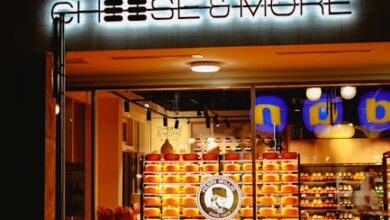WhoSampled: The Rosetta Stone of Music’s DNA

Remember the thrill of flipping through dusty record crates, stumbling upon a forgotten gem that suddenly made sense of another track you loved? Or perhaps you recall the hours spent diving deep into liner notes, tracing the influences and sampled sounds that built your favorite hip-hop track or electronic masterpiece. In an era dominated by algorithmic recommendations, that kind of serendipitous, deeply contextual music discovery has often felt… elusive.
Sure, Spotify’s personalized playlists are nothing short of genius for helping us find more of what we already like. But what about understanding the *lineage* of a song? Its hidden ancestry, its direct descendants, the covers that pay homage, or the remixes that twist its essence into something new? This is where the magic of human curation meets the boundless potential of data, and it’s precisely why Spotify’s recent acquisition of WhoSampled isn’t just big news — it’s a seismic shift in how we’ll experience music discovery going forward.
WhoSampled: The Rosetta Stone of Music’s DNA
For years, WhoSampled has been an indispensable resource for music aficionados, producers, and curious listeners worldwide. It’s not just a database; it’s a meticulously curated encyclopedia of musical relationships. Imagine a musical family tree, meticulously charted. Every branch, every root, every unexpected connection laid bare.
At its core, WhoSampled tracks samples – those snippets of existing recordings woven into new tracks – along with covers, remixes, and the artists involved. Its dedication to this intricate web has resulted in an astonishing repository: currently tracking over 1.2 million songs and close to 622,000 samples. This isn’t just data; it’s the very DNA of modern music, a testament to how art constantly builds upon, reinterprets, and evolves from its predecessors.
Before this acquisition, if you wanted to know if that catchy drum beat in a new pop song was borrowed from a obscure 70s funk track, or if a particular vocal riff had been re-sung countless times, WhoSampled was your go-to. It empowered a level of musical literacy and connection that no other platform truly offered. It satisfied that primal urge to understand “where did this come from?” – a question algorithms, by themselves, often struggled to answer with true depth.
Spotify’s Masterstroke: Beyond the Algorithmic Echo Chamber
Spotify, for all its prowess in personalizing playlists and serving up “Discover Weekly” gems, has always faced a subtle challenge: how to move beyond merely recommending similar-sounding songs. While incredibly effective, these algorithms can sometimes create an “echo chamber,” reinforcing existing tastes rather than truly expanding horizons in a meaningful, contextual way.
The acquisition of WhoSampled changes this game entirely. It’s a bold declaration from Spotify that the future of music discovery isn’t just about what you might like, but about understanding the rich tapestry of music itself. By integrating WhoSampled’s vast, human-curated dataset, Spotify is poised to unlock entirely new dimensions of exploration.
This isn’t just about adding a new feature; it’s about infusing a deeper, more academic understanding of music into the core of the listening experience. The data WhoSampled provides isn’t just metadata; it’s cultural context, historical lineage, and artistic influence distilled into structured information. This is precisely what will power Spotify’s much-anticipated “SongDNA” feature.
What “SongDNA” Really Means for You
Imagine listening to a track and, with a simple tap, seeing its entire musical family tree unfold before you. You could instantly discover the original song that was sampled, then jump to that original track. From there, you might see all the other songs that sampled the *same* original, or perhaps a list of covers and remixes that reinterpret it. This isn’t just about “artists you might like” based on sonic similarity; it’s about tracing direct influences, understanding artistic conversations across decades, and appreciating the intricate journey of musical ideas.
SongDNA promises to transform passive listening into active exploration. It will empower users to become musical detectives, uncovering connections they never knew existed. For someone who loves hip-hop, this could mean a deep dive into the funk, soul, and jazz records that form its foundation. For an electronic music fan, it could illuminate the obscure synth lines or vocal snippets that gave birth to their favorite beats. It’s a bridge between genres, eras, and cultures, all accessible within the Spotify app.
This contextual layer goes beyond simple genre tags. It adds a human-understandable narrative to music, making discovery not just a recommendation, but an educational journey. It’s about building a richer, more engaging relationship with the music you love, and with the artists who create it.
The Future of Music Discovery: Personalization Meets Pedigree
The implications of this acquisition extend far beyond individual listening habits. For the music industry, it raises the bar for what a streaming platform can offer. While competitors might replicate some of Spotify’s algorithmic features, the depth of WhoSampled’s data is unique and incredibly difficult to build from scratch. This gives Spotify a significant competitive edge in delivering a genuinely differentiated music discovery experience.
For artists, SongDNA could mean new avenues for discovery and recognition. Imagine an obscure funk artist from the 70s suddenly finding a new audience because their sampled track is prominently featured within the SongDNA of a modern hit. It could help bridge gaps between generations of listeners and bring renewed attention to foundational works, ensuring that credit is given where it’s due, and that musical heritage is preserved and celebrated.
Moreover, this move underscores a growing trend in digital media: the synthesis of robust data with rich, human-curated content. Algorithms are powerful, but they often benefit immensely from a bedrock of intelligently structured, human-vetted information. WhoSampled provided that bedrock for understanding musical relationships, and Spotify is now building a skyscraper of discovery upon it.
In essence, Spotify’s acquisition of WhoSampled is more than just a business deal; it’s a profound investment in the future of music literacy and discovery. It promises a world where the sheer volume of available music doesn’t overwhelm, but instead invites deeper, more meaningful exploration. We’re on the cusp of an exciting new era where every listen can lead to a deeper understanding, connecting us not just to a song, but to its entire creative universe.





